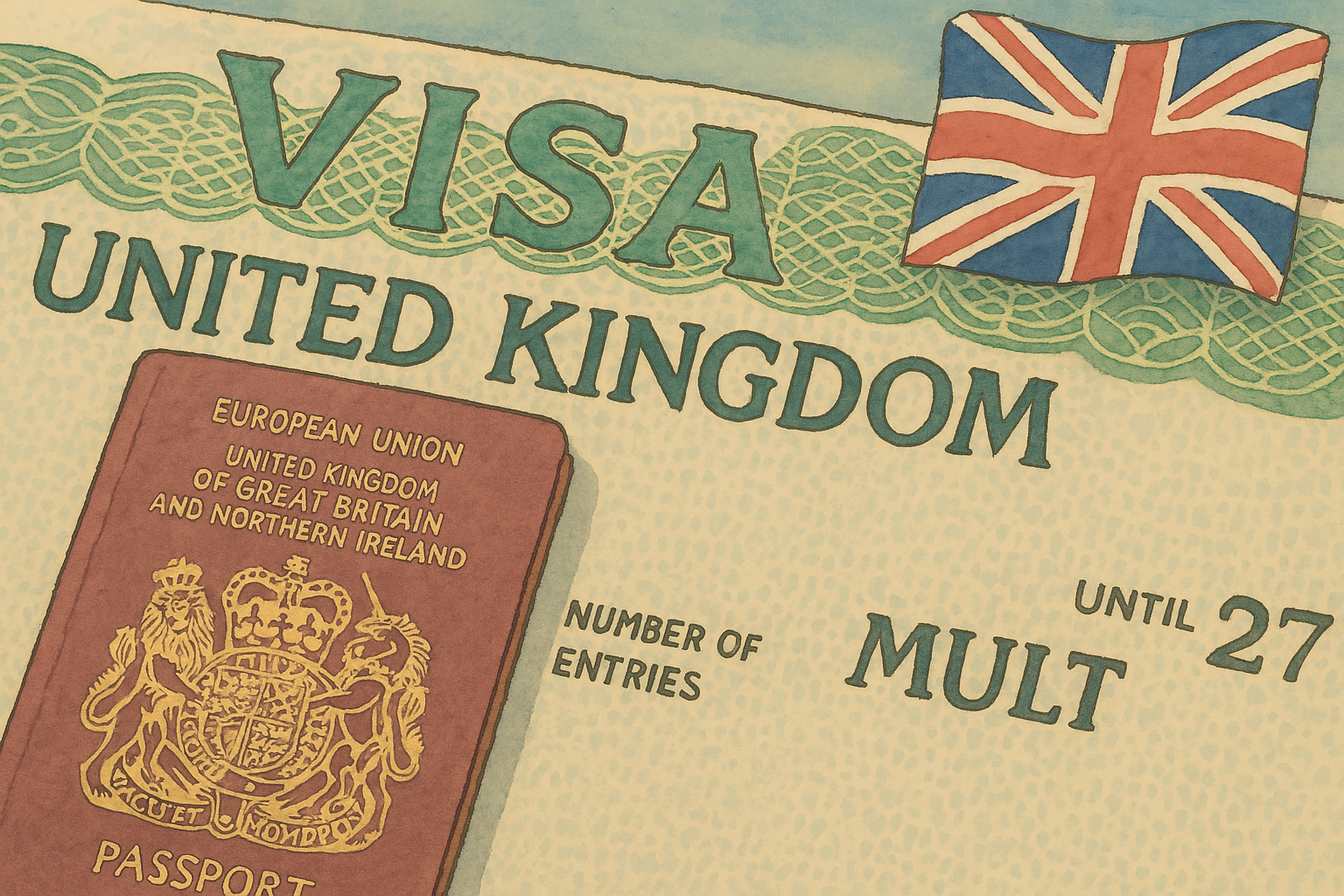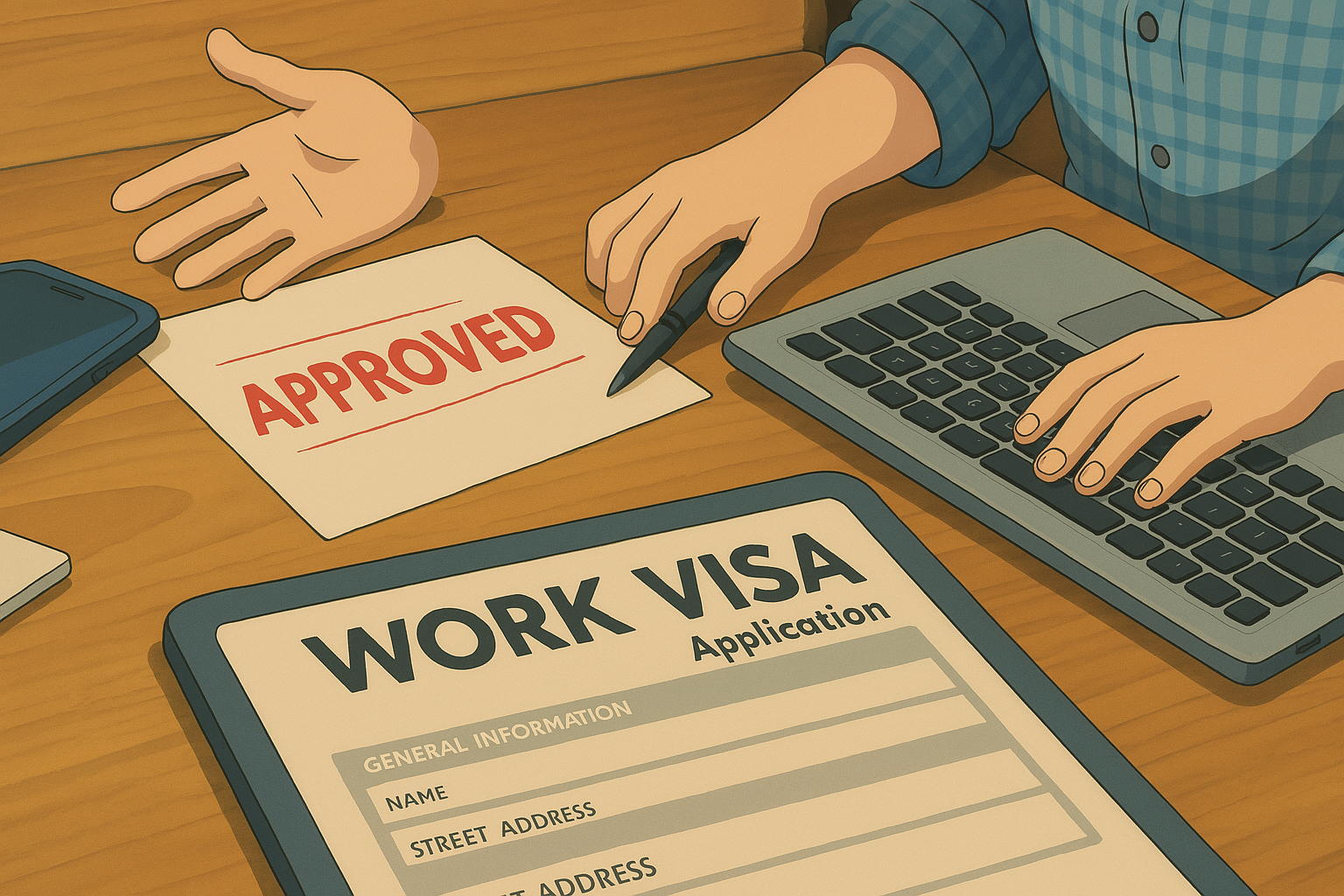The United Kingdom is a top destination for foreign workers seeking career opportunities, a high quality of life, and a stable economy. However, before moving to the UK for work, it is essential to understand the various visa options, requirements, and application processes. In this comprehensive guide, we will outline everything you need to know about UK work visas, helping you navigate the system efficiently.
Types of UK Work Visas
The UK offers several work visa options, depending on your skills, qualifications, and employment circumstances. Here are the main types of work visas available for foreigners:
1. Skilled Worker Visa
The Skilled Worker visa is the most common work visa for foreigners. It allows skilled professionals to work in the UK for an approved employer.
Eligibility Requirements:
- A job offer from a UK employer that is a licensed sponsor.
- The job must be on the list of eligible occupations.
- A salary of at least £26,200 per year or £10.75 per hour (lower for certain shortage occupations).
- Proficiency in English (pass an approved English language test or hold a relevant qualification).
2. Health and Care Worker Visa
This visa is designed for medical professionals, including doctors, nurses, and social care workers, to work in the UK’s healthcare sector.
Eligibility Requirements:
- A valid job offer from the NHS, an NHS supplier, or the adult social care sector.
- The job must be on the list of eligible health and care occupations.
- An English language proficiency certificate.
- Exemption from the immigration health surcharge.
3. Global Business Mobility Visa
The Global Business Mobility (GBM) visa allows businesses to send workers to the UK for specific purposes, including expansion and specialist roles.
Categories of GBM Visa:
- Senior or Specialist Worker visa (for employees transferring from a global company branch to the UK).
- Graduate Trainee visa (for structured training programs leading to specialist roles).
- Secondment Worker visa (for employees working on UK contracts with overseas businesses).
- UK Expansion Worker visa (for senior employees setting up a UK branch).
4. Scale-up Worker Visa
This visa allows skilled professionals to work for high-growth UK businesses that are expanding rapidly.
Eligibility Requirements:
- A job offer from a UK company approved as a scale-up sponsor.
- A salary of at least £33,000 per year or £10.10 per hour.
- English language proficiency.
5. Temporary Worker Visas
For short-term employment, the UK offers temporary work visas, such as:
- Seasonal Worker Visa (for farm workers and horticulture roles, valid for up to 6 months).
- Creative Worker Visa (for entertainers, artists, and musicians).
- Government Authorised Exchange Visa (for research, training, and internships).
6. High Potential Individual (HPI) Visa
The HPI visa is designed for graduates from top global universities to work or start a business in the UK without needing a job offer.
Eligibility Requirements:
- A degree from a top-ranking university outside the UK within the past five years.
- English language proficiency.
- Proof of financial maintenance funds.
General UK Work Visa Requirements
Regardless of the type of work visa, most applicants must meet the following general requirements:
- Job Offer from a Licensed Sponsor: Your employer must be on the UK’s list of licensed sponsors.
- Salary Threshold: Most skilled worker visas require a minimum salary.
- English Language Proficiency: Applicants must prove their ability to speak, read, write, and understand English.
- Financial Requirements: Many visas require proof of savings to support yourself upon arrival.
- Criminal Record Certificate: Certain roles (e.g., healthcare and teaching) require background checks.
- Tuberculosis Test Results: Required for applicants from specific countries.
UK Work Visa Application Process
The application process for a UK work visa generally involves the following steps:
Step 1: Check Your Eligibility
Determine which visa category suits your qualifications, job role, and circumstances.
Step 2: Secure a Job Offer
Obtain a job offer from a UK employer who is an approved sponsor.
Step 3: Gather Required Documents
Typical documents include:
- Valid passport
- Certificate of sponsorship (from your employer)
- Proof of English proficiency
- Financial proof (bank statements)
- TB test results (if applicable)
- Academic qualifications
Step 4: Apply Online
Submit your visa application on the official UK government website and pay the application fee.
Step 5: Attend a Biometric Appointment
Visit a visa application center in your home country to submit fingerprints and a photograph.
Step 6: Receive a Decision
Processing times vary, but most applications take between 3 to 8 weeks.
Costs of UK Work Visas
Visa costs depend on the type and duration of the visa:
- Skilled Worker Visa: £610 to £1,408
- Health and Care Worker Visa: £232 to £464
- Global Business Mobility Visa: £610 to £1,408
- Scale-up Visa: £715
Additional costs may include:
- Immigration Health Surcharge (IHS): Approximately £624 per year
- Priority processing fees (if opting for faster processing)
Extending or Switching UK Work Visas
Many work visas allow extensions or switching to a different category.
Extending a Work Visa:
- Apply before your current visa expires.
- Meet salary and employment requirements.
Switching to a Different Visa:
- You may switch from a student or temporary visa to a skilled worker visa if eligible.
Permanent Residency and Indefinite Leave to Remain (ILR)
After working in the UK for 5 years on most work visas, you may be eligible for Indefinite Leave to Remain (ILR), allowing you to live permanently in the UK.
Requirements for ILR:
- 5 years of continuous residence.
- Proof of income and employment.
- Pass the “Life in the UK” test.
- No history of criminal activity.
Conclusion
Understanding the UK work visa requirements is crucial for foreign workers aiming to build a career in the UK. By selecting the right visa, meeting eligibility criteria, and following the application process, you can successfully secure your UK work permit.


